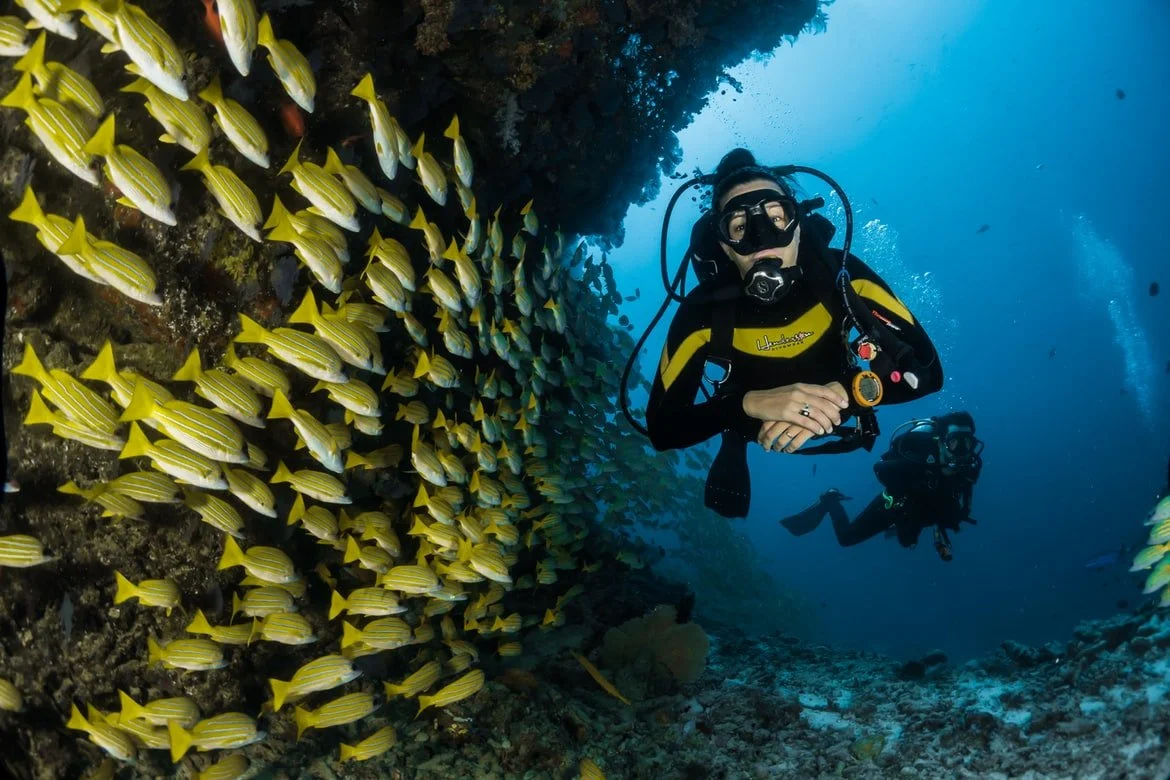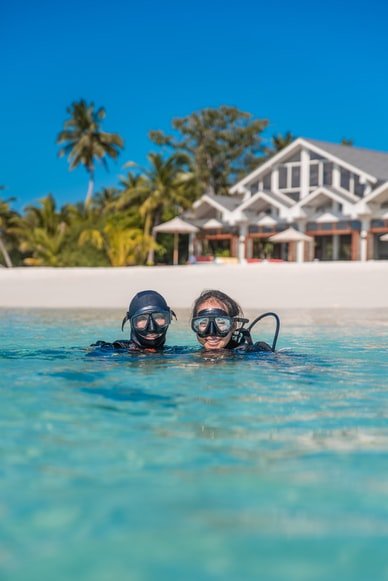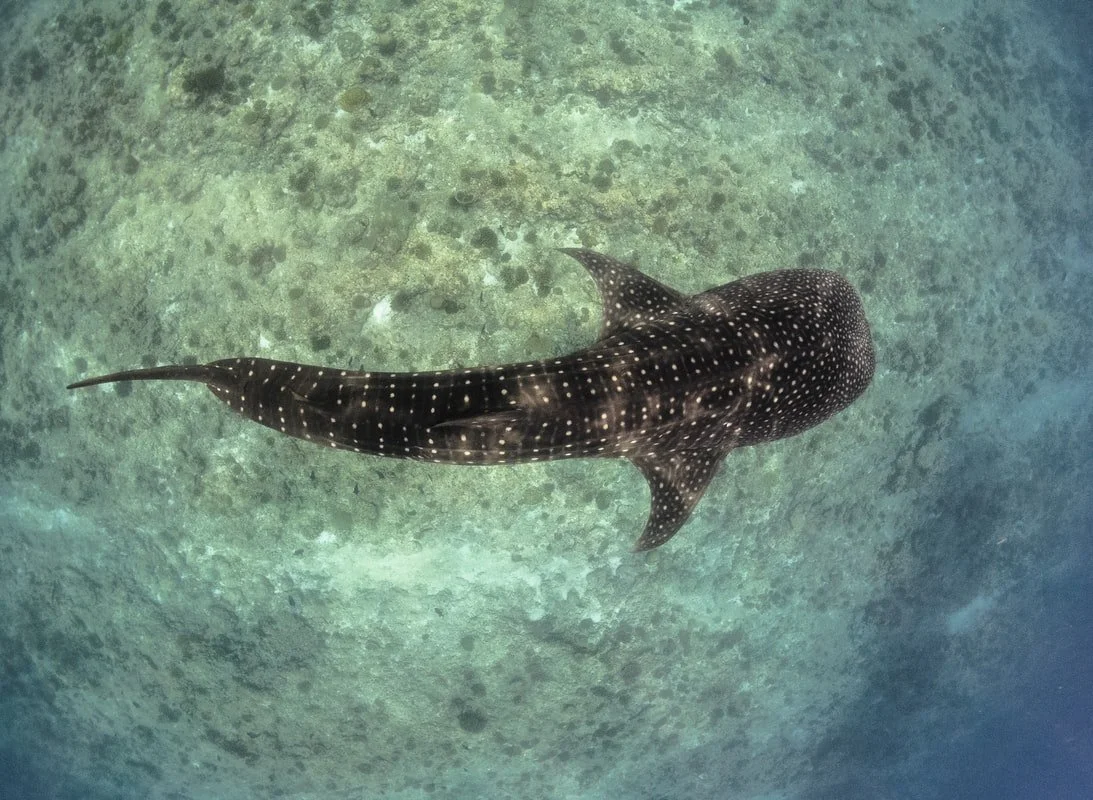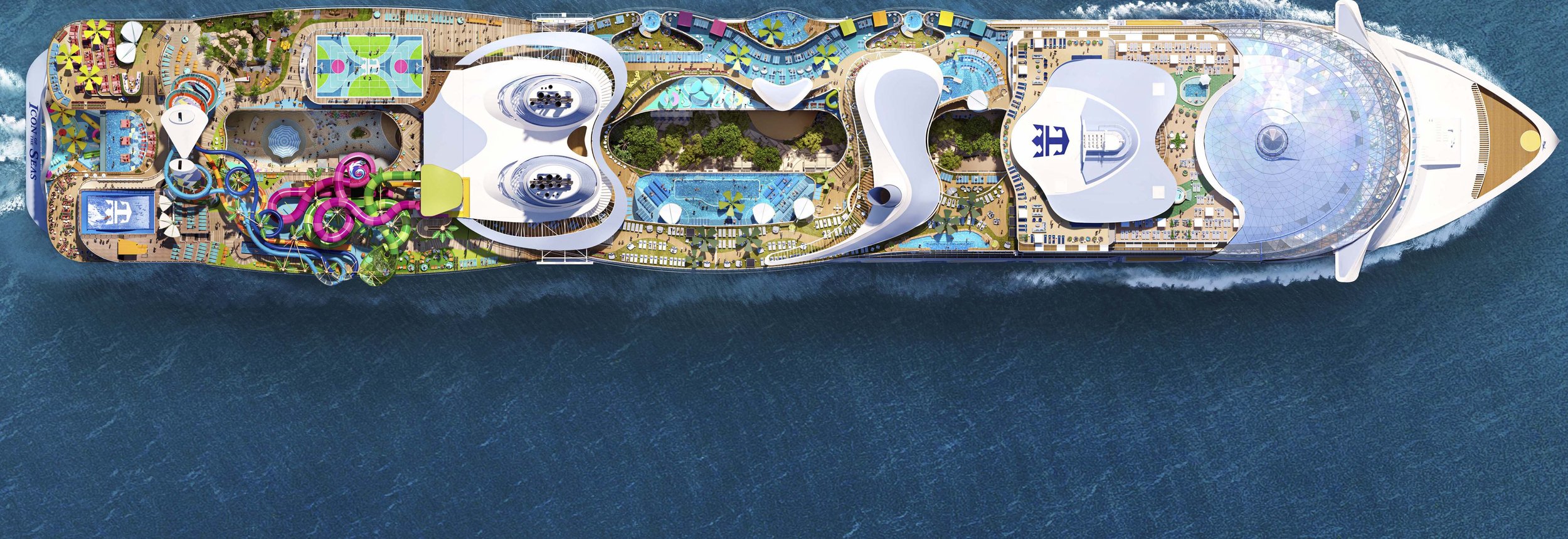When I first learned to scuba dive it was in the frigid waters off Cape Town, South Africa. To endure the Cape’s famously chilly waters I wore a 10mm-thick wetsuit, booties on my feet, and was weighed down by kilograms of lead to offset the neoprene. Add on a buoyancy control device, regulators and an air tank, and just getting into the water felt like wrestling the Michelin man.
So what a pleasure, I smiled through my regulator, to be blowing bubbles a few metres beneath the turquoise waters of the Maldives wearing just board shorts and a rash vest.
That famously warm, gin-clear water – year-round it hovers about 30 degrees – is just one of the reasons the Maldives is one of the finest places on earth to dive. Especially if you’re just starting out.
Nearly all of the island resorts here boast a globally accredited dive centre, offering courses from basic Open Water training, the first step to diving, right up to Dive Master. At my first resort, training dives were conducted in the sheltered sandy-bottomed bay in front of the resort while our first boat dives were out on the fringing reef, offering underwater sightings most novice divers only dream about. Restrictive wetsuits and ice-cream headaches from the ocean? Forget it.
Once you’re certified, or if you’re arriving with your C-card in hand, the Maldives is your underwater oyster. Across the island nation there are literally hundreds of remarkable dive sites catering for every type of diver.
Drift dives take advantage of the currents swirling between the coral atolls, making for thrilling downstream dives that whisk you along the reefs with hardly a flick of your fin. Walls plunge from sun-sparkled shallows to inky blue waters where pelagic species rise up to meet you from the deep. Of course the chance to dive with manta rays and whale sharks adds another layer of excitement to each backwards roll into the warm tropical waters.
But, these ocean wanderers arrive in numbers to feast on the plankton brought in by the southwest monsoon, and the abundance of micro-organisms can dent the Maldives’ famous underwater visibility.
So if you don’t mind missing the mega-fauna, aim to visit between January and April. These are considered the best months for diving with warm, dry weather and settled seas offering near-perfect conditions below the surface. You’ll still enjoy diving from May through to July, although visibility drops during this rainy season.
If diving is an important part of your Maldivian holiday, it’s worth choosing a resort that offers an extensive diving program and facilities.
The South Ari Atoll offers some of the best scuba diving in the Maldives, and at Vilamendhoo Island Resort the Euro Divers centre brings decades of underwater experience to your scuba escape. Vilamendhoo also offers a particularly impressive selection of dive sites, from the approachable house reef that will keep beginners happily entertained, to the towering thila pinnacles that emerge from the depths. For the more adventurous, channel dives deliver a remarkable mix of pelagic fish, sharks and eagle rays.
North of the international airport, Kuredu Resort offers a PADI 5-star dive centre. Situated in the Lhaviyani Atoll, a region famous for its aggregations of juvenile manta rays, dive sites such as Caves and Express offer remarkable close-up encounters with green turtles and sharks. The iconic Shipyard wreck site is also within easy reach, offering a dive experience unique in the Maldives.
And unique is perhaps the best word to use when it comes to describing what it’s like to scuba dive in the Maldives. From endless visibility and year-round warm water, to a remarkable array of marine life, divers both new and experienced will love every minute spent underwater in the Maldives.
Plan your trip: Air Seychelles flies weekly (departing Johannesburg on Friday evenings) from Johannesburg to the Maldives, with a brief technical stop in the Seychelles. To plan an unforgettable Maldivian escape, go to VisitMaldives.com. Bookings should be made through Priority Escapes. Book your flight at [email protected] or +27 (0)10 023 1234
Entry requirements: South African passport holders receive a tourist visa on arrival to enter the Maldives. Ensure your passport is valid for at least one month after scheduled date of return, and has at least two blank pages for entry stamps.
Covid-19 Safety: Passengers entering the Maldives are NO LONGER required to present a PCR negative test result upon arrival if the individual(s) have completed the prescribed dose(s) of a Covid-19 vaccine that is being approved by the Maldives Food & Drug Authority or by the World Health Organization (WHO) Emergency Use Listing (EUL) and at least 14 (fourteen) days have passed since. (Booster dose(s) are not required to be eligible for this exemption).
Tourists who spend their holiday in tourist facilities in inhabited islands are NO LONGER required to do a PCR test when departing from respective inhabited islands.
In-flight on Air Seychelles all travellers are required to wear a facemask, except when eating or drinking.
This is a paid partnership with Air Seychelles and Visit Maldives.
















